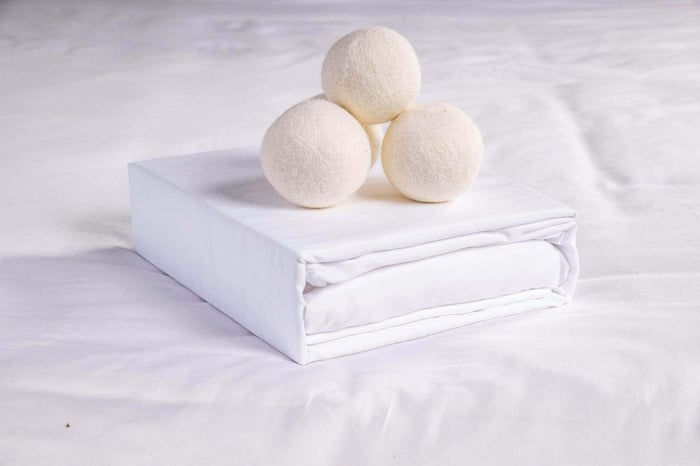Table of Contents
- The Wake-Up Call: Why I Switched to Organic Cotton Bedding
- The Hidden Dangers of Conventional Bedding 🤔
- The Benefits of Organic Cotton Bedding 🌱
- Cotton vs Bamboo and Polyester Sheets
- The Cost Factor: Is Organic Cotton Worth It? 💰
- My Personal Experience: The Game-Changer 😊
- The Health Benefits of Sleeping on Cotton Sheets 😴💚
- How to Choose the Best Organic Bedding
- Caring for Your Organic Bedding
- FAQs About Organic Bedding 🤔
- The Verdict: Make the Switch Today 🌍💚
- FAQs on Wool Duvet Inserts, Comforters & Sustainable Bedding
The Wake-Up Call: Why I Switched to Organic Cotton Bedding
Why use Organic Cotton?
I never thought much about my bedding until I started waking up with unexplained allergies, irritated skin, and an overall feeling of discomfort. It felt like my sheets were suffocating me rather than providing the cozy, restful sleep I needed. That’s when I started digging deeper into what my bedding was made of — and what I found was shocking.
💤 Did You Know? Conventional cotton is one of the most chemically treated crops in the world, using around 16% of global pesticides. These chemicals don’t just stay in the fields — they end up in our homes, in our beds, and ultimately, on our skin. Switching to organic cotton sheets is one of the simplest ways to create a healthier sleep environment.
The Hidden Dangers of Conventional Bedding 🤔
Most conventional bedding is loaded with synthetic dyes, pesticides, and formaldehyde-based treatments to keep sheets wrinkle-free. While this may sound convenient, these chemicals have been linked to skin irritation, respiratory issues, and even long-term health concerns.
- Allergens & Irritants: Many of these chemicals linger on your sheets long after they’re made, potentially triggering allergies, eczema, and asthma.
- Off-Gassing: Ever noticed a strange smell when opening new bedding? That’s off-gassing—a process where chemicals are released into the air, contributing to indoor air pollution.
- Environmental Damage: Conventional cotton farming uses excessive water and harmful pesticides, leading to soil degradation and pollution.
Once I learned this, sleeping on my old bedding felt impossible. I knew I had to make a change.
Toxins You Can’t See — But Can Feel
Studies have shown that conventionally processed bedding can retain residues of formaldehyde, azo dyes, and flame retardants — all of which can affect respiratory health and sensitive skin. Choosing GOTS-certified organic cotton sheets means sleeping free from those invisible irritants.
The Benefits of Organic Cotton Bedding 🌱
Making the switch to organic bedding changed everything for me and my family. Here’s why:
Healthier Sleep Environment:
- Free from pesticides and harsh chemicals, organic cotton bedding supports cleaner air and calmer skin.
- Hypoallergenic and gentle on sensitive skin.
Breathable & Moisture-Wicking:
- Natural fibers allow airflow and absorb excess moisture, ideal for hot sleepers and night-sweat sufferers.
- Organic cotton naturally regulates temperature, keeping you cool in summer and warm in winter.
- Unlike synthetic materials, it wicks away moisture rather than trapping heat.
Softer & More Durable:
- Organic cotton sheets get softer with each wash without breaking down from synthetic coatings.
- Organic cotton isn’t processed with harsh chemicals, which helps retain the softness of the fibers.
- Lasts longer, making it a smart investment in comfort and sustainability.
Eco-Friendly & Ethical Choice:
- From sustainable farming to fair-trade production, organic cotton supports soil health and humane labor.
- Uses significantly less water than conventional cotton.
- Supports fair-trade practices and ethical farming communities.
Did You Know? Organic cotton uses 91% less water than conventional cotton because it relies on rainwater rather than irrigation.
To see how organic and regenerative bedding choices influence sleep comfort, health, and long-term impact, our complete guide breaks it all down.
 Freshly washed organic cotton sheets — naturally breathable, chemical-free, and sun-dried the way nature intended | Antipodean Home
Freshly washed organic cotton sheets — naturally breathable, chemical-free, and sun-dried the way nature intended | Antipodean HomeCotton vs Bamboo and Polyester Sheets
While bamboo and polyester claim to be sustainable, most are chemically processed into rayon or blended with synthetics. Organic cotton sheets are pure, plant-based, and biodegradable — offering breathability and non-toxic comfort that lasts.
The Cost Factor: Is Organic Cotton Worth It? 💰
I get it—organic bedding can be more expensive upfront. But when you break it down, the long-term benefits outweigh the initial cost:
- Fewer replacements needed: Organic is more durable, meaning you won’t need to replace it as often.
- Better sleep quality: A comfortable, chemical-free sleep environment can improve overall well-being.
- Health savings: Avoiding allergens and toxins can help reduce health-related expenses over time.
I once thought of bedding as just another household item. Now, I see it as an investment in my health and peace of mind.
My Personal Experience: The Game-Changer 😊
After switching to organic bedding, I immediately noticed the difference. The first night, my skin felt softer, and I woke up without congestion or irritation. The sheets felt more breathable, and I wasn’t overheating like before. It wasn’t just a minor improvement—it was a sleep revolution.
Once I switched, I noticed the difference immediately — no more skin irritation, no overheating, just calm, clean sleep. Explore our Organic Regenerative Cotton Sheets →
Regenerative Organic Cotton Sheet Set – Soft, Breathable & Sustainable

$189.00
Softer Sheets. Cleaner Sleep. Our organic cotton sheet set are simply better for the earth, and for your sleep. Grown on low-impact regenerative farms that actively heal the soil, our cotton is then woven and finished responsibly. This process eliminates… Read more
The Health Benefits of Sleeping on Cotton Sheets 😴💚
Did you know that your sleep quality is directly linked to the materials you sleep on? Many people suffer from disrupted sleep without realizing that conventional bedding could be the culprit. Organic sheets, on the other hand, offer several health benefits that promote deeper, more restorative sleep.1. Hypoallergenic & Gentle on Skin If you’ve ever woken up with unexplained rashes, sneezing, or congestion, your bedding might be triggering allergies. Conventional sheets often contain pesticide residues, formaldehyde, and synthetic dyes—all of which can irritate sensitive skin and cause respiratory issues. Organic sheets are free from these toxins, making it a safer choice for people with allergies, asthma, or eczema.
2. Breathable & Temperature-Regulating Organic sheets are naturally breathable and moisture-wicking, helping to regulate body temperature throughout the night. Unlike synthetic fibers that trap heat and sweat, cotton allows airflow, keeping you cool in the summer and cozy in the winter. This means fewer night sweats and a more comfortable, uninterrupted sleep.
3. No Harmful Chemical Exposure Most conventional bedding is treated with flame retardants, wrinkle-resistant chemicals, and dyes that can off-gas toxic fumes. Long-term exposure to these chemicals has been linked to headaches, hormonal disruptions, and even chronic illnesses. Natural cotton sheets eliminate this risk, ensuring you breathe cleaner air while you sleep.
4. Supports a Restorative Sleep Cycle When your body isn’t exposed to irritants, allergens, or fluctuating temperatures, you fall into a deeper sleep cycle. High-quality, chemical-free bedding contributes to reduced tossing and turning, allowing you to wake up feeling refreshed and rejuvenated.
Investing in natural cotton bedding isn’t just about sustainability—it’s about giving your body the healthiest sleep environment possible. Ready to make the switch? 🌿
How to Choose the Best Organic Bedding
Not all organic bedding is created equal! Here’s what to look for:
- GOTS-Certified (Global Organic Textile Standard): Ensures truly organic, ethical production.
- OEKO-TEX Certification: Confirms no harmful substances.
- Fair Trade Labels: Supports ethical farming and fair wages.
- Minimal or Eco-Friendly Packaging: Sustainable brands practice what they preach.
Caring for Your Organic Bedding
Want your organic sheets to last even longer? Here’s how:
- Wash in Cold Water: Helps preserve fabric integrity and reduces energy use.
- Use Gentle, Eco-Friendly Detergent: Harsh chemicals can weaken fibers.
- Line Dry When Possible: Protects fibers and saves electricity.
- Skip Fabric Softeners & Bleach: They contain harsh chemicals that break down natural fibers.
Pro Tip: Line-drying organic sheets makes them last longer and feel softer over time.
For those who want bedding aligned with both sleep quality and regenerative principles, our organic and regenerative bedding collection offers a clear next step.
FAQs About Organic Bedding 🤔
1. Is organic really worth the hype? Absolutely! Beyond comfort, it’s a choice that benefits your health and the planet.
2. How can I tell if my bedding is genuinely organic? Check for GOTS or OEKO-TEX certification to ensure authenticity.
3. Is organic bedding softer than regular bedding? Yes! The absence of harsh chemicals helps preserve the natural softness of cotton fibers.
4. Does organic cotton last longer? Yes! Because it isn’t chemically weakened, organic cotton bedding tends to be more durable.
5. Is organic cotton bedding good for hot sleepers? Definitely. Its breathable nature wicks away moisture, helping regulate body temperature for a better night’s sleep.
The Verdict: Make the Switch Today 🌍💚
Switching to organic cotton bedding is more than just a luxury—it’s an investment in your health, comfort, and the well-being of our planet. It’s one of those small, everyday changes that can make a huge impact. Ready to sleep better and breathe easier?
Check out our collection of luxuriously soft, ethically made organic bedding here.
FAQs on Wool Duvet Inserts, Comforters & Sustainable Bedding
Why choose organic cotton bedding?
Organic cotton bedding is grown without pesticides or harmful dyes, making it safer for your skin and better for the planet. It’s naturally breathable, hypoallergenic, and gentle on sensitive skin — helping you sleep cleaner and more comfortably every night.
Is organic cotton really better for your health?
Yes. Because it’s chemical-free and non-toxic, organic cotton doesn’t off-gas or irritate your skin. It creates a purer sleep environment that supports cleaner air quality and fewer allergic reactions.
Do organic cotton sheets last longer?
They do. Without synthetic coatings or chemical weakening, organic cotton fibers retain their strength and softness over time. Many people find they last twice as long as conventional sheets — and feel better every wash.
How does organic cotton help the planet?
Organic cotton farming supports regenerative soil health and uses up to 90% less water than conventional cotton. It also eliminates toxic runoff, protecting local ecosystems and the people who grow it.
How should I care for organic cotton bedding?
Wash in cold or warm water with a mild, eco-friendly detergent. Skip fabric softeners and bleach. Line-dry in sunlight or tumble on low heat. Proper care keeps your organic bedding breathable, fresh, and beautifully soft for years.




